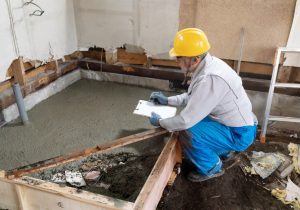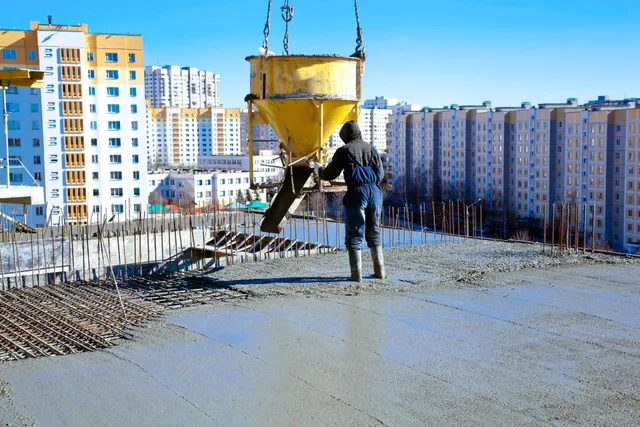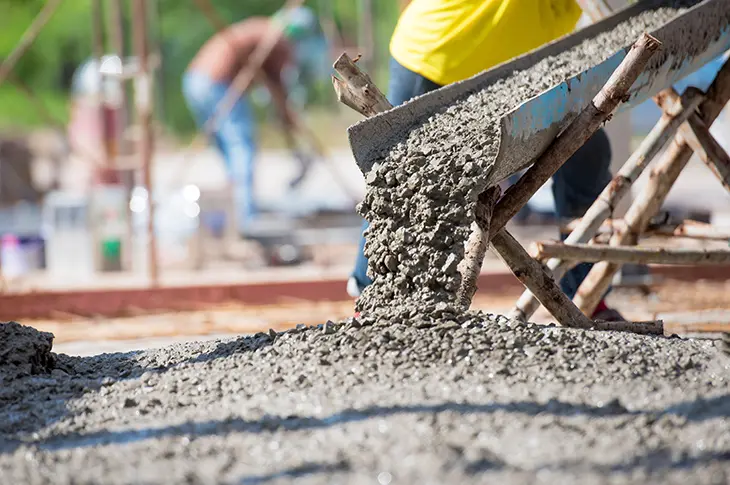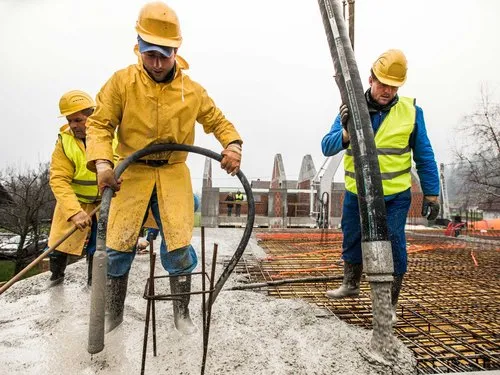 Concrete is one of the most versatile and widely used construction materials in the world. Its strength, durability, and adaptability make it ideal for a wide range of construction projects, from small residential repairs to large commercial builds. However, not all concrete services are the same, and each type of service is designed to meet specific needs and requirements. Understanding the various types of concrete services and their applications can help you choose the right one for your project, ensuring long-lasting and reliable results.
Concrete is one of the most versatile and widely used construction materials in the world. Its strength, durability, and adaptability make it ideal for a wide range of construction projects, from small residential repairs to large commercial builds. However, not all concrete services are the same, and each type of service is designed to meet specific needs and requirements. Understanding the various types of concrete services and their applications can help you choose the right one for your project, ensuring long-lasting and reliable results.
In this blog post, we will explore the different types of concrete services commonly offered by professional contractors, along with their specific uses in both residential and commercial construction.
1. Concrete Driveways and Walkways
Concrete driveways and walkways are among the most common applications for concrete in residential and commercial settings. A concrete driveway offers a smooth, durable surface for vehicles, while concrete walkways provide a safe and sturdy path for pedestrians. The popularity of concrete for these applications comes from its ability to withstand heavy loads, resist wear and tear, and endure various weather conditions.
Professionals typically recommend concrete for driveways and walkways because it requires relatively low maintenance while offering a long service life. With proper installation and regular sealing, a concrete driveway can last for several decades without major repairs. Additionally, concrete can be customized in various finishes, colors, and textures, allowing homeowners and businesses to create aesthetically pleasing designs that complement their surroundings.
Applications:
- Residential driveways and walkways
- Commercial parking lots and entrances
- Pedestrian paths in parks or outdoor spaces
2. Concrete Foundations
Concrete foundations are essential to the structural integrity of any building, whether it’s a small home or a large commercial complex. A well-built concrete foundation provides a stable base that supports the weight of the entire structure, ensuring that it remains level and secure. There are several types of concrete foundations, including slab foundations, pier and beam foundations, and basement foundations. Each type is suited for different conditions, such as soil type, climate, and building size.
Professionally installed foundations are designed to handle factors like moisture, soil movement, and pressure from the structure above. Improperly constructed foundations can lead to significant problems, including cracking, shifting, and even structural collapse. Therefore, it’s crucial to hire experienced concrete contractors who understand local soil conditions and building codes to ensure that your foundation is built to last.
Applications:
- Residential and commercial building foundations
- Structural support for bridges, towers, and other infrastructure
- Retaining walls and boundary walls
3. Stamped and Decorative Concrete
Stamped and decorative concrete has gained popularity in recent years due to its ability to mimic the appearance of more expensive materials like brick, stone, or wood while offering the strength and durability of concrete. Stamped concrete involves pressing patterns into freshly laid concrete, creating textures that replicate natural materials. Decorative concrete, on the other hand, can involve techniques like staining, coloring, or polishing to enhance the aesthetic appeal of the surface.
This type of concrete service is particularly useful for outdoor areas where aesthetics are just as important as function. Driveways, patios, and pool decks are common locations where stamped or decorative concrete is used. It provides a cost-effective alternative to using real stone or brick while offering a wide range of design possibilities.
Applications:
- Patios, pool decks, and outdoor living spaces
- Driveways and walkways with decorative finishes
- Commercial flooring in restaurants, hotels, and shopping malls
4. Concrete Slabs
Concrete slabs are flat, horizontal surfaces typically used for floors, roofs, and pavements. Concrete slab construction is commonly used in both residential and commercial projects due to its versatility and durability. Slabs can be either reinforced or unreinforced, depending on the load they will carry. For example, thicker, reinforced slabs are used in industrial applications where they need to support heavy machinery, while thinner slabs are often used in residential settings.
One of the major benefits of concrete slabs is their ability to create a smooth, level surface that can be used for flooring, countertops, and even outdoor areas. In addition, concrete slabs are a cost-effective option for projects that require large, flat surfaces, and they can be poured quickly and efficiently by experienced contractors.
Applications:
- Flooring for homes and commercial buildings
- Industrial warehouses and garages
- Concrete countertops and outdoor surfaces
5. Concrete Repair and Restoration
Concrete, while durable, is not immune to wear and tear. Over time, concrete surfaces can crack, chip, or become discolored due to factors such as weather, heavy use, or poor installation. Concrete repair and restoration services address these issues by repairing damaged surfaces and restoring them to their original condition. Depending on the extent of the damage, contractors may use techniques such as patching, resurfacing, or even full replacement of the affected areas.
Repairing concrete not only improves its appearance but also extends its lifespan and prevents further deterioration. For instance, sealing cracks can prevent moisture from seeping in and causing more severe damage, while resurfacing can give old concrete a fresh, new look without the need for complete replacement.
Applications:
- Repair of cracked or damaged driveways and walkways
- Resurfacing worn-out concrete floors in commercial buildings
- Fixing structural cracks in foundations or walls
6. Concrete Retaining Walls
Concrete retaining walls are commonly used in landscaping and construction to hold back soil, create leveled areas on sloped terrain, or prevent erosion. Retaining walls must be built with precision and careful engineering to ensure they can withstand the pressure of the soil they are holding back. Professional contractors use a combination of concrete, reinforcement materials, and drainage solutions to create walls that are both functional and visually appealing.
Retaining walls can also serve as decorative features in gardens and outdoor spaces, where they are used to create raised flower beds, terraces, or seating areas. These walls are typically designed to blend into the landscape while offering practical benefits, such as preventing soil erosion or providing additional space in uneven areas.
Applications:
- Landscaping and garden features
- Erosion control in sloped or hilly areas
- Structural support for elevated patios or terraces
Conclusion
Understanding the different types of concrete services and their applications is essential for choosing the right service for your project. From foundational work to decorative finishes, concrete offers unmatched strength, durability, and versatility in construction. Whether you’re building a driveway, laying a foundation, or designing an outdoor space, working with professional concrete contractors ensures that the job is done correctly, providing you with a long-lasting, high-quality result.
Each type of concrete service comes with its own unique benefits and challenges, and selecting the right one depends on the specific needs of your project. By relying on the expertise of professionals, you can be confident that your concrete work will meet your expectations and stand the test of time.




